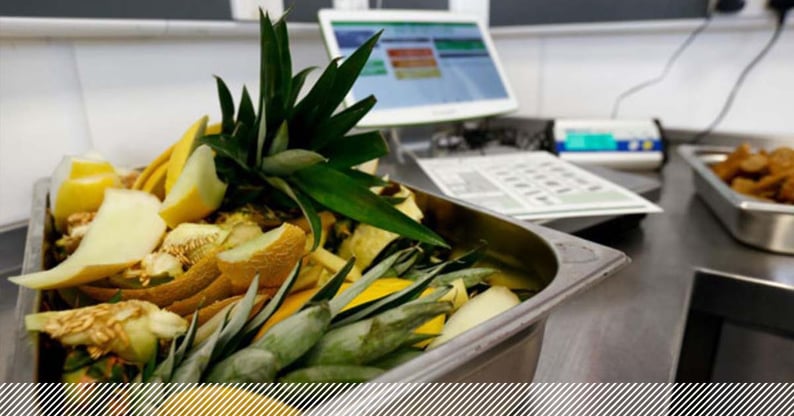Debunking the limiting belief that measuring food waste is “too hard”

The world is at an inflection point regarding climate change and the many sustainability challenges underlying the UN’s Sustainable Development Goals (SDGs), including food waste reduction.
We’re at the halfway point toward the 2030 due date for the SDGs, but we are not moving fast enough on many of them to make that deadline.
Given the critical nexus aspect of food waste, it is especially important that the world get on track for halving global food waste by 2030 as called for by SDG Target 12.3.
Doing so requires high expectations and organizational commitment for food waste reduction in the foodservice sector, coupled with bold reduction goals and an action focus.
While progress is undoubtedly being made, we can and must move faster, and we’re increasingly conscious of a limiting narrative that must be changed.
The narrative that we hear too often in webinars and conference discussions on food waste reduction programs goes like this: “Measurement is hard, and it’s expensive.”
This mindset–despite ignoring the reality of the ease with which technology makes measurement–provides cover for slow action, or worse, no action, on implementation of food waste reduction initiatives.
At Leanpath, we believe that it is essential to change this narrative to accelerate the scale of food waste reduction initiatives as a key part of the global effort to transform food systems and drive progress toward multiple SDGs.
In our view, the prevailing narrative should instead be “Measurement is easy, and it is an investment in savings.”
Let’s take the first part. Leanpath has been providing a range of integrated measurement devices to foodservice operations for nearly 20 years, refining the process to meet the needs of time-crunched kitchens of all sizes. The actual process of measuring a wasted food item takes just seconds, and it can be done by any foodservice employee in many languages. With Leanpath’s technology, measurement of food waste is easy.
Second, our technology solutions include highly granular, actionable insights, impactful reports, and a range of behavior change tools (at individual sites and enterprise levels) that enable foodservice operators to reduce food waste today and prevent its recurrence tomorrow. Our process typically allows operations to cut food waste in half within one year while yielding a return on investment of 2-7x (not to mention the additional social and environmental benefits created via prevention). Such an ROI is highly attractive to the finance team. So we believe that food waste prevention efforts are anything but a cost, and instead are an investment in savings.
Further, in periods of high food price inflation and labor challenges, the ROI from food waste prevention is even higher – no operation wishes to waste costly food, nor spend precious labor time producing food that will only go to waste.
At the 2022 ReFED Summit in Minneapolis, Leanpath’s Andrew Shakman discussed the importance of overcoming limiting beliefs and challenging existing mindsets and operational protocols in foodservice that hinder our ability to move faster and deeper on food waste reduction.
Together, we must move away from reinforcing the limiting notion that “measurement is hard, and it’s expensive” to inspiring action with the message that “measurement is easy, and it is an investment in savings.”
Let’s all listen closely to the narrative. And let’s seek to guide conversations to overcome limiting beliefs and accelerate the speed and scale of food waste prevention initiatives.
As Andrew reminded us in Minneapolis last year, it’s important that we all project high expectations on food waste prevention efforts – “let’s go big, let’s go fast, and let’s go all in” to maximize our impact.
And if you are headed to this year’s ReFED Summit in St. Louis, feel free to connect with us on this important conversation.
Sign up for our monthly newsletter for the latest in
food waste prevention initiatives, best practices, webinars and more.
